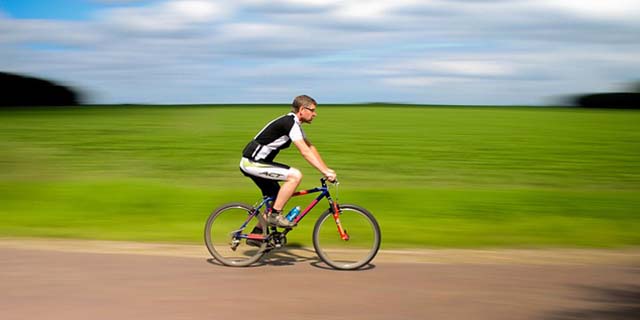
What is Does Cycling Help Lose Weight?
Cycling is an effective form of exercise that can significantly aid in weight loss. It combines cardiovascular benefits with muscle engagement, allowing individuals to burn calories while improving their overall fitness. When cycling, the body utilizes energy from stored fat and carbohydrates, leading to a caloric deficit when paired with a balanced diet. Additionally, cycling can be easily adjusted in intensity and duration, making it accessible for people of varying fitness levels. Regular cycling not only helps shed pounds but also boosts metabolism, enhances endurance, and promotes mental well-being, making it a holistic approach to weight management. **Brief Answer:** Yes, cycling helps lose weight by burning calories and promoting a caloric deficit, while also improving overall fitness and metabolism.
What is Does Cycling Help Lose Weight?
Cycling is an effective form of exercise that can significantly aid in weight loss. It combines cardiovascular benefits with muscle engagement, allowing individuals to burn calories while improving their overall fitness. When cycling, the body utilizes energy from stored fat and carbohydrates, leading to a caloric deficit when paired with a balanced diet. Additionally, cycling can be easily adjusted in intensity and duration, making it accessible for people of varying fitness levels. Regular cycling not only helps shed pounds but also boosts metabolism, enhances endurance, and promotes mental well-being, making it a holistic approach to weight management. **Brief Answer:** Yes, cycling helps lose weight by burning calories and promoting a caloric deficit, while also improving overall fitness and metabolism.


Technique of Does Cycling Help Lose Weight?
Cycling is an effective technique for weight loss due to its ability to burn calories while being a low-impact exercise that is easy on the joints. Engaging in cycling, whether outdoors or on a stationary bike, can elevate heart rates and increase metabolism, leading to significant calorie expenditure. The intensity and duration of cycling sessions can be adjusted to suit individual fitness levels, making it accessible for beginners and advanced cyclists alike. Additionally, incorporating interval training—alternating between high-intensity bursts and moderate cycling—can further enhance fat burning and improve cardiovascular health. Overall, when combined with a balanced diet, regular cycling can contribute significantly to weight loss goals. **Brief Answer:** Yes, cycling helps lose weight by burning calories effectively, improving metabolism, and being adaptable to various fitness levels.
Training related to Does Cycling Help Lose Weight?
Training related to the question "Does cycling help lose weight?" involves understanding the physiological effects of cycling on the body, as well as incorporating effective cycling routines into a fitness regimen. Cycling is an excellent cardiovascular exercise that can burn significant calories, depending on factors such as intensity, duration, and individual metabolism. To maximize weight loss, training programs often emphasize a combination of steady-state rides and high-intensity interval training (HIIT), which can enhance fat burning and improve overall fitness. Additionally, pairing cycling with a balanced diet and strength training can further support weight loss goals. **Brief Answer:** Yes, cycling can help lose weight by burning calories and improving cardiovascular fitness, especially when combined with a healthy diet and varied training routines.

Advertising space for rent

FAQ
-
What is cycling?Cycling is a physical activity and sport that involves riding a bicycle for exercise, recreation, or competition.
-
What are the health benefits of cycling?Cycling improves cardiovascular fitness, strengthens muscles, enhances flexibility, and aids in weight management.
-
What types of bicycles are there?Common types include road bikes, mountain bikes, hybrid bikes, and electric bikes, each designed for different riding environments.
-
How do I choose the right bicycle?Consider factors like your riding style, terrain, comfort, and budget. Road bikes are good for paved roads, while mountain bikes are designed for rough terrain.
-
What should I wear when cycling?Wear comfortable, moisture-wicking clothing, a helmet, cycling gloves, and padded shorts for comfort and protection.
-
How do I stay safe while cycling?Always wear a helmet, follow traffic rules, use lights and reflectors at night, and ensure your bike is well-maintained.
-
What is the best way to train for cycling?Training involves building endurance with long rides, improving strength through intervals, and working on technique with drills.
-
How does cycling compare to running for fitness?Both activities improve cardiovascular health, but cycling is lower impact on the joints, making it easier on the knees and hips.
-
What should I eat before and after cycling?Before cycling, consume a light meal rich in carbohydrates. After cycling, eat a mix of carbohydrates and protein to aid recovery.
-
What are cycling events and races?Events range from local charity rides to professional races like the Tour de France, which is one of the most famous cycling competitions in the world.
-
How do I improve my cycling performance?To improve, focus on building endurance, increasing speed with interval training, and ensuring proper bike fit and technique.
-
What is a bike fit?A bike fit involves adjusting your bicycle to suit your body measurements, helping to improve comfort, prevent injuries, and enhance performance.
-
How can I maintain my bicycle?Regular maintenance includes checking tire pressure, lubricating the chain, cleaning the bike, and ensuring brakes and gears are functioning correctly.
-
What is the difference between road bikes and mountain bikes?Road bikes are lightweight and optimized for smooth, paved roads, while mountain bikes are designed for rugged terrain with suspension systems and wider tires.
-
How do I protect the environment while cycling?Cycling is an eco-friendly mode of transportation that reduces carbon emissions. Ensure to maintain your bike, avoid littering, and choose eco-friendly products.
